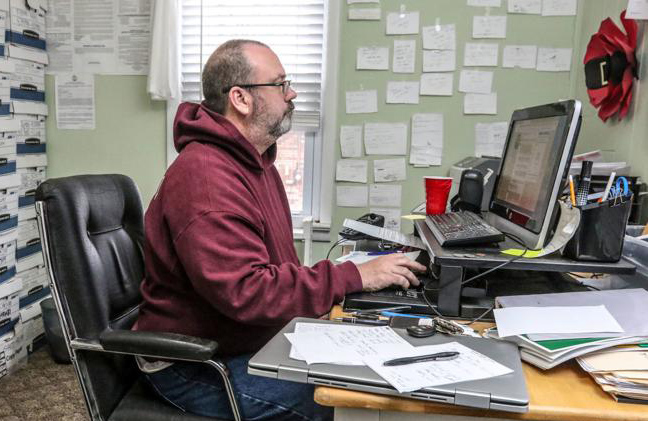The Kentucky Senate has passed a bill aimed at reining in the middlemen who decide who gets paid how much for drugs in Medicaid, a problem that advocates say is threatening independent rural pharmacies all over the country.

(Photo by Greg Eans, Owensboro Messenger-Inquirer)
“We’re going to be the first state in the country that is going to do something like this,” the bill’s sponsor, Sen. Max Wise, R-Campbellsville, told Melissa Patrick of Kentucky Health News. “There are going to be a lot of eyes on Kentucky.” The bill is now in the state House.
Rosemary Smith of the Kentucky Independent Pharmacist Alliance, which represents 500 independent pharmacists, told Patrick, “This bill will allow us to stay open.” Smith said she and her husband have been forced to close two of their drug stores because of low reimbursement rates from pharmacy benefit managers, who act as middlemen between insurance and drug companies; they determine what drugs are offered, how much is paid for the drug, and payments to pharmacists.
In Kentucky, each of the state’s five Medicaid managed-care firms contracts with a PBM to manage the state’s $1.7 billion-a-year prescription drug business. Wise’s bill would require the state to hire a single PBM. CVS Health, an affiliate of the drugstore chain, which holds most of the state’s current PBM business in contracts with manged-care firms, criticized the bill, Deborah Yetter reports for the Louisville Courier-Journal.
Gregg Henry told Renee Beasley Jones of the Owensboro Messenger-Inquirer that he was closing his pharmacy in Sacramento, Ky., after seven years because of the low reimbursements paid by the PBMs, which started in 2017. He said he lost $5,000 in January alone because of recent cuts.
“This little bitty pharmacy in this little bitty community stood up,” Henry told Jones, in reference to at least two years of fighting against the PBMs. “I hope our martyrdom creates a wake-up call about the absolute necessity for the passage of this legislation.”
(The Rural Blog is published by the Institute for Rural Journalism and Community Issues, based at the University of Kentucky.)
The Rural Blog is a publication of the Institute for Rural Journalism and Community Issues based at the University of Kentucky.






